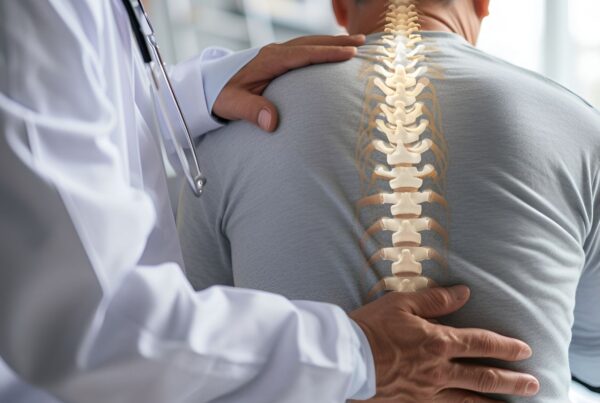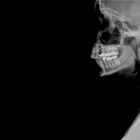If you are suffering from a pinched nerve in your back, you may have pain that limits your normal activities. Your pain may prevent you from sitting, standing or walking. The symptoms may also keep you from enjoying your normal work and recreational activities.
Symptoms of a pinched nerve may include:
- Back pain
- Pain radiating into your buttocks, thigh or leg
- Weakness in your leg or ankle
- Numbness or tingling in your thigh or lower leg
- Weakness in your thigh or lower leg and ankle
Back pain or sciatica can be a serious problem. If you have back pain or sciatica, you should check in with your doctor right away to get an accurate diagnosis and start the proper treatment.
What is a Pinched Nerve?
A pinched nerve occurs when any structure in your lower back becomes compressed. This compression can then cause back pain or send symptoms radiating from your spine and down one or both legs.
When a nerve in your back becomes pinched, your symptoms may be constant or intermittent. Specific motions or positions – like sitting or standing – can cause your symptoms to worsen. Other activities or positions may give you relief of your symptoms. Understanding how your symptoms behave can help you modify your activities to allow greater mobility with less pinching and fewer symptoms.
Of course, persistent back pain should be checked by your doctor so you can figure out the cause of your pain and the best treatment for you.
Causes of a Pinched Nerve
There are many different causes of a pinched nerve in your spine. When visiting with your doctor, he or she may order specific diagnostic tests – like an X-ray or MRI – to determine which structure is pinching your nerve and causing your symptoms.
Common causes of back pain or sciatica include:
- Herniated discs
- Facet joint arthritis
- Foraminal or central stenosis
When any structure in your spine presses upon a nerve that courses down your leg, back pain or sciatica may result. Figuring out which structure is pinching your nerve can help you get the appropriate treatment.
Treatment for a Pinched Nerve
If you have a pinched nerve, there are many different treatments for you. Your doctor will likely have you start on a course of physical therapy. The goal of PT is to get pressure off your nerve. This will help relieve your symptoms and improve your ability to move around.
Your doctor may also recommend you have a cortisone injection for your symptoms. This helps to control the inflammation around the nerve, relieving your pain and improving your ability to move.
If your symptoms persist after attempting conservative treatment, you may benefit from a surgical procedure to help get pressure off your nerve.
Minimally Invasive Spine Surgery for a Pinched Nerve
A neurosurgeon can help you determine if a surgical procedure is necessary to treat your back pain and sciatica. One approach that a few NJ neurosurgeons use is called minimally invasive spine surgery. During this procedure, your surgeon makes a small incision in your back and uses specialized instruments to visualize your spine and to cut away material that may be pinching your nerve. This helps to decompress your nerve to relieve your pain or improve your mobility.
Of course, all surgery carries with it some risk. Risks of minimally invasive surgery for a pinched nerve may include:
- Severe postoperative pain
- Temporary or, rarely permanent, worsening of symptoms
- Infection
- Spinal fluid leak
- Hematoma
While the risk of these complications is low, you should discuss them with your neurosurgeon before having surgery.
The benefits of minimally invasive spine surgery, when compared to the standard open procedure, include:
- Less pain
- Decreased risk of blood loss
- Low risk of infection
- Rapid recovery
If your pain is caused by a herniated disc that is pinching your nerve, your doctor will likely perform a microdiscectomy. During this procedure, your surgeon will cut away disc material that has pushed out of place and pinched your nerve. This procedure can be done using the minimally invasive approach.
Finding a neurosurgeon who performs minimally invasive spine surgery for a pinched nerve is a good idea, as it can help you enjoy a rapid recovery with less pain and a quick return to normal activities.
It's time to get back
to doing what you love.
Pinched Nerve Surgery Recovery
If you require surgery for sciatica or back pain due to a pinched nerve, you should work closely with your neurosurgeon so you understand what to expect during your recovery. Your doctor can give you a general timeline of your recovery process.
Day One
After your surgery is complete, nursing staff at the surgical center will assist you in meeting specific goals that signify you are ready to go home. You will be given a small amount of food and your nurses will ensure that you are not nauseous or vomiting, which is an occasional side effect of anesthesia medication.
Another objective after surgery is to be able to get out of bed and use the restroom. Your nurses can provide some assistance, but most patients who undergo minimally invasive spine surgery can start moving around on their own soon after surgery. When your nurses are sure you have urinated and are moving around safely, your doctor will check on you to ensure you have adequate pain control, and then you will likely be discharged home.
The First Week after Surgery
During the first week after minimally invasive spine surgery for a pinched nerve, you will slowly be able to increase your activity level. Care should be taken not to sit slouched or to bend and lift heavy items. You should slowly increase your walking tolerance and watch your back incision for any signs of infection, such as redness or discharge. If there is any concern about the wound, your should contact your doctor.
Three Weeks after Surgery
Over the next few weeks after surgery for a pinched nerve, you can start to increase your activity level. Most patients benefit from walking regularly, and light exercise can be initiated. If your job is relatively sedentary, you may consider returning to work. If you work in heavy labor, a few more weeks of relative rest may be considered after your surgery.
During this period you should see your doctor to assess your recovery and response to surgery. Your doctor may modify your treatment plan at this time.
Most patients are fully recovered about 4 to 6 weeks after minimally invasive spine surgery for a pinched nerve. Remember that everyone heals differently. Be sure to speak with your neurosurgeon so you know what to expect with your specific recovery.
If you have sciatica from a pinched nerve, you should understand the different treatments available for you. If surgery is an option, you should work closely with a trusted neurosurgeon who performs minimally invasive spine surgery to maximize your chances of a rapid and smooth recovery.

About Dr. William S. Cobb
Dr. William Cobb is an accomplished neurosurgeon in North Jersey and a proud member of Neurosurgeons of New Jersey, practicing out of their Ridgewood office conveniently located on East Ridgewood Avenue. During his Neurological Surgery residency, he became passionate about the development and treatment of brain tumors affecting the brain and spine. Dr. Cobb uses state-of-the-art technology for surgical intervention in the treatment of tumors of the brain and spine including Gamma Knife radiosurgery. He has vast experience in using modern minimally invasive surgery for the treatment of degenerative spine and intervertebral disc disease. Dr. Cobb serves as the Director of Neurosurgical Oncology at Valley Hospital. He's accepting new patients.
Recent Posts:






